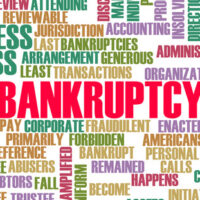What is the Difference Between Conversion and Dismissal in a Bankruptcy Case?

Sometimes an individual or a business will file for bankruptcy, but the bankruptcy case will not be completed. The reason for this can be a conversion to another type of bankruptcy, or a dismissal. Depending upon the circumstances of the case, conversations and dismissals may be voluntary or involuntary — meaning that the debtor voluntarily sought to have the case converted or dismissed, or that another party like a creditor or trustee files a motion to convert or dismiss the bankruptcy case without the debtor’s consent. It is important to know that conversion and dismissal are not the same thing, and the processes are quite different from one another with different outcomes. What is the difference between conversion and dismissal in a bankruptcy case? Our West Palm Beach bankruptcy lawyers can explain, and we can discuss the specific facts of your case with you today.
Understanding Dismissals in Bankruptcy Cases
A dismissal, according to the US Bankruptcy Court system, is a word used to describe a situation in which all bankruptcy proceedings have stopped, including any adversary proceedings, and there is no discharge order. As we indicated above, a dismissal can occur voluntarily when a debtor qualifies for a voluntary dismissal, or it can be involuntary.
Why would a debtor seek a voluntary dismissal? The debtor’s circumstances might have changed, for example, and the debtor may no longer require bankruptcy protection or may have other issues to resolve before moving forward with a bankruptcy case. What about an involuntary dismissal? Typically, a bankruptcy court will dismiss on an involuntary basis for many different reasons, such as:
- Existence of bankruptcy fraud;
- Bad faith;
- Debtor failed to complete the required courses;
- Debtor did not provide all of the required documents or supporting evidence;
- Debtor failed to pay the court fees;
- Debtor did not attend the 341 meeting of creditors; or
- Chapter-specific issues, such as the debtor failing to pass the means test in a Chapter 7 bankruptcy case or failing to make required payments under a Chapter 13 plan.
Understanding Conversions in Bankruptcy Cases
Conversions, like dismissals, can be voluntary or involuntary. Unlike a dismissal, a conversation can still lead to the completion and closing of a bankruptcy case. With a conversion, the debtor’s case is converted from one type of bankruptcy to another, such as:
- Chapter 13 to 7 for an individual;
- Chapter 11 to 7 for a business;
- Chapter 7 to 13 for an individual; or
- Chapter 7 to 11 for a business.
If you need assistance converting your bankruptcy case, you should seek assistance from an attorney. If you have received information about a creditor or trustee petitioning for a conversion, you should also get help from a bankruptcy lawyer quickly.
Contact a West Palm Beach Bankruptcy Attorney Today
Do you have questions about converting an existing bankruptcy case, having a bankruptcy case dismissed, or other concerns about the general bankruptcy process? One of the experienced West Palm Beach bankruptcy attorneys at Kelley, Kaplan & Eller can talk with you today to learn more about your situation and can provide you with information. We have years of experience representing individuals and businesses alike in a wide range of bankruptcy matters, and we can begin working with you on your bankruptcy case.
Source:
uscourts.gov/about-federal-courts/types-cases/bankruptcy-cases



